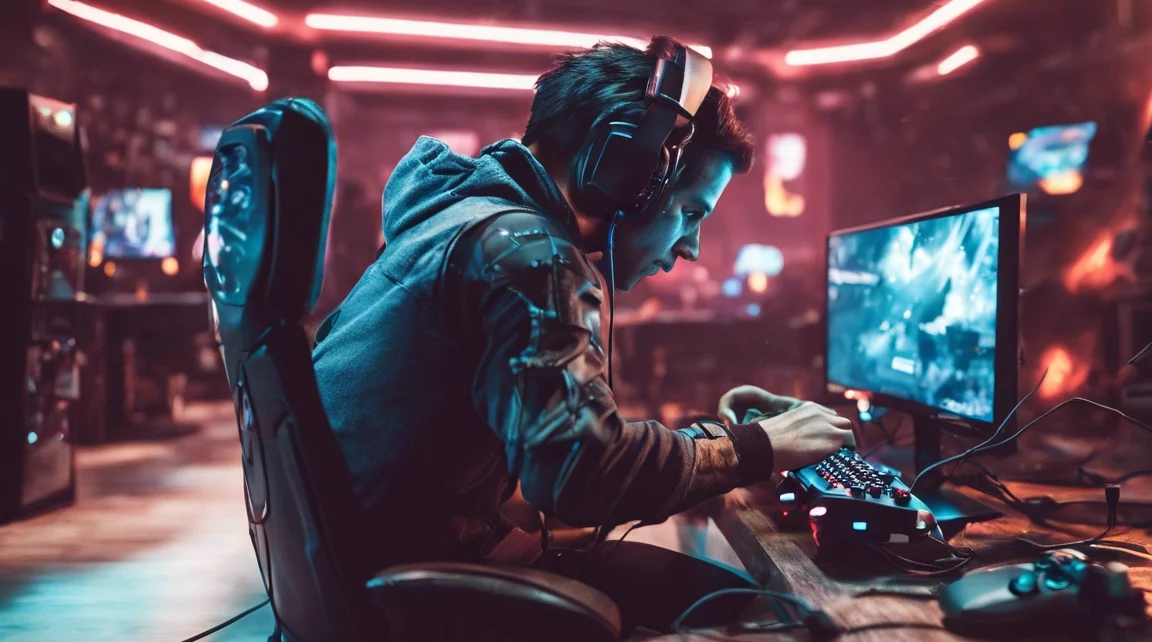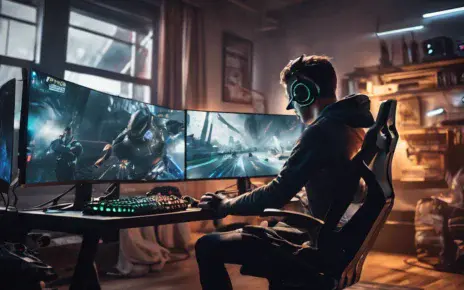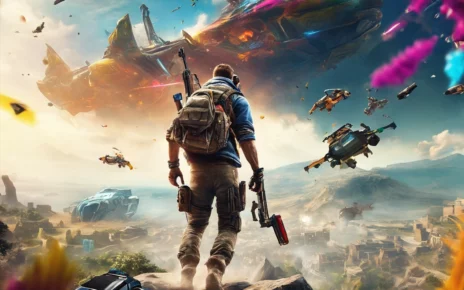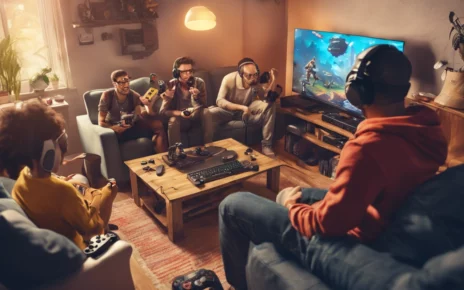Gaming isn’t just about having fun anymore—it’s about honing key skills that can boost your performance across different genres. In this guide, we’ll cover everything from essential traits for gamers to the best tools for competitive play and how to start your journey to becoming a great player.
1. Essential Gamer Skills: Hand-Eye Coordination and Reflexes
One of the top skills every gamer needs is hand-eye coordination. Whether you’re dodging enemies in an FPS (First-Person Shooter) or executing flawless combos in fighting games, precise movements and quick reactions are key. Fast reflexes make the difference between winning and losing, especially in high-pressure, fast-paced situations.
2. Strategic Thinking and Problem-Solving in Gaming
Being a gamer also involves sharp strategic thinking and problem-solving abilities. Each game presents unique challenges, and understanding game mechanics to outsmart your opponents proves that gaming is a mental workout. Games like puzzle games, strategy games, and MMORPGs (Massively Multiplayer Online Role-Playing Games) often require players to adapt and solve complex problems under pressure.
3. Adaptability and Learning New Tactics
In today’s gaming environment, adaptability is crucial. Games get updated with patches and new content, meaning that gamers must constantly learn new tactics and master updated game mechanics. This is especially important in online multiplayer games where staying competitive requires frequent adjustments.
4. Focus and Concentration During Long Gaming Sessions
Maintaining focus and mental endurance is just as critical as physical reflexes. Many gaming sessions, particularly in competitive or esports settings, can be long, and staying focused for hours is a game-changer. Effective concentration is often what sets high-performing players apart in the most intense moments.
5. Teamwork and Communication in Multiplayer Games
In team-based games like MOBA (Multiplayer Online Battle Arena) or Battle Royale genres, teamwork and communication are essential. Success often comes down to how well you support teammates and communicate strategies during the match.
Best Tools and Equipment for Competitive Gaming
To gain a competitive edge, having the right gaming equipment matters. While it won’t make you a pro overnight, good hardware can drastically improve your gaming experience.
1. High-Performance Gaming Hardware
Investing in a powerful PC or gaming console can make all the difference, especially in games with high graphic demands. A system with fast load times and minimal lag is key for a smooth gaming experience.
2. Ergonomic Setup for Long Gaming Sessions
Don’t underestimate the importance of an ergonomic setup. A gaming chair that supports your posture, an adjustable desk, and properly positioned monitors prevent strain during long hours of play.
3. Fast and Reliable Internet Connection
A reliable internet connection is critical for online gaming. Lag can ruin your competitive experience, so ensure you have fast and stable internet to play at your best.
4. Specialized Gaming Peripherals
Invest in specialized gaming gear like mechanical keyboards, precision gaming mice, or high-end controllers. These peripherals are designed to improve your performance and responsiveness in games.
5. High-Quality Audio Systems
Good audio systems or gaming headsets can enhance your gameplay by allowing you to pick up subtle sounds like enemy footsteps or environmental cues. This heightened awareness can significantly impact your in-game decisions.
What Makes a Good Gamer vs. a Perfect Gamer
Consistency, dedication, and ethical gameplay distinguish good gamers from great ones. The best gamers practice regularly, stay committed to improving, and respect the rules of the game.
1. Consistent Practice and Improvement
To rise to the top, consistent practice is crucial. Whether it’s perfecting your skills in a particular game or staying updated with the latest game patches, continuous improvement is key.
2. Sportsmanship and Ethical Play
Playing ethically in games is critical to maintaining a positive community. Cheating, exploiting bugs, or disrespecting other players damages the gaming environment. Being a gamer with integrity will earn you respect and recognition.
3. Balancing Gaming with Life Responsibilities
While gaming is a passion, it’s important to balance it with other life responsibilities. Healthy routines will ensure you enjoy the experience without burnout.
How to Start Your Gaming Journey
If you’re new to gaming or looking to dive deeper into the world of competitive play, here’s a roadmap to start:
1. Explore Different Game Genres
Sampling different game genres helps you find your niche. From fast-paced shooters to strategic RPGs (Role-Playing Games), there’s something for every playstyle.
2. Join Gaming Communities
Getting involved with gaming communities can make your experience more enjoyable. Join forums, online groups, or play with friends to connect with like-minded gamers.
3. Participate in Tournaments
Test your skills by participating in local or online gaming tournaments. These competitions help you improve your teamwork and individual performance under pressure.
4. Learn from Gaming Mentors and Experts
Watching streamers, joining gaming clubs, or learning from seasoned players can fast-track your skill development. Mentorship helps you avoid common mistakes and refine your gameplay faster.




